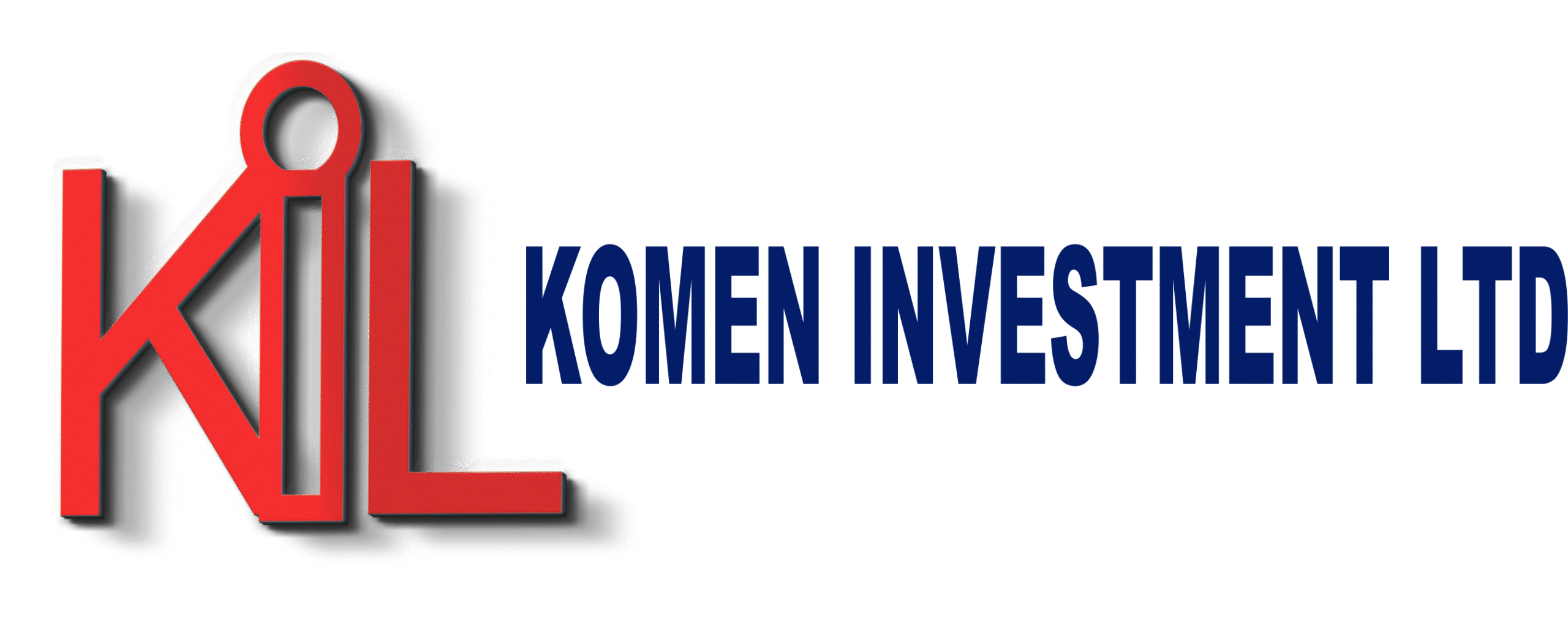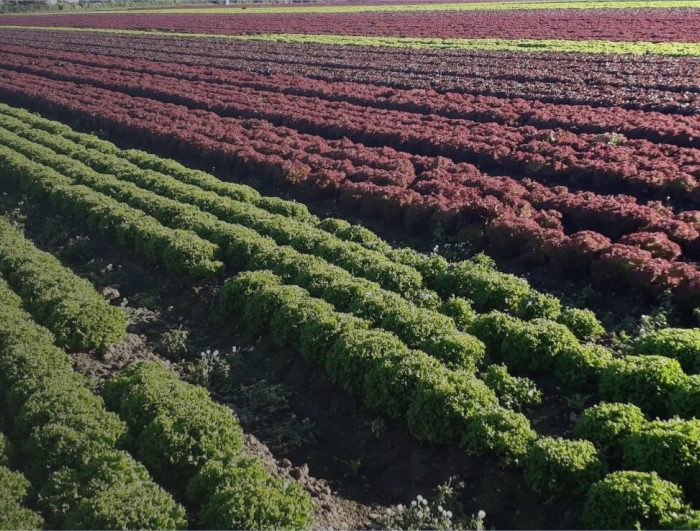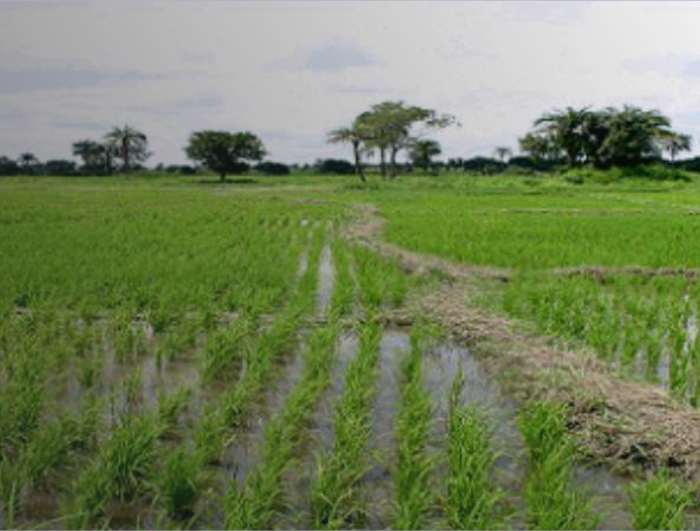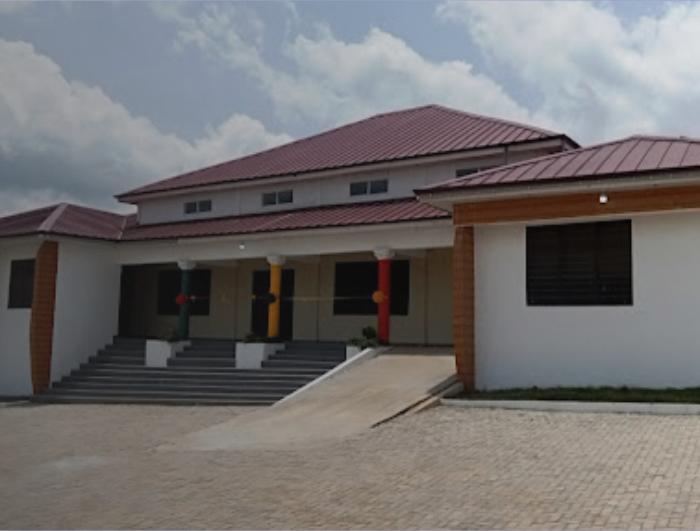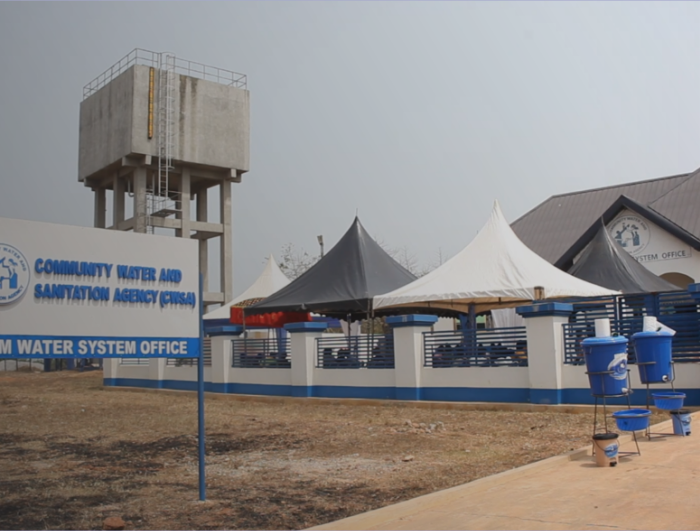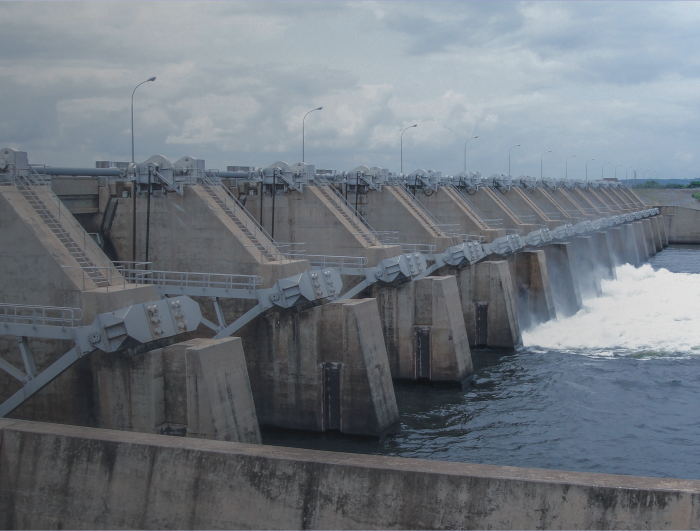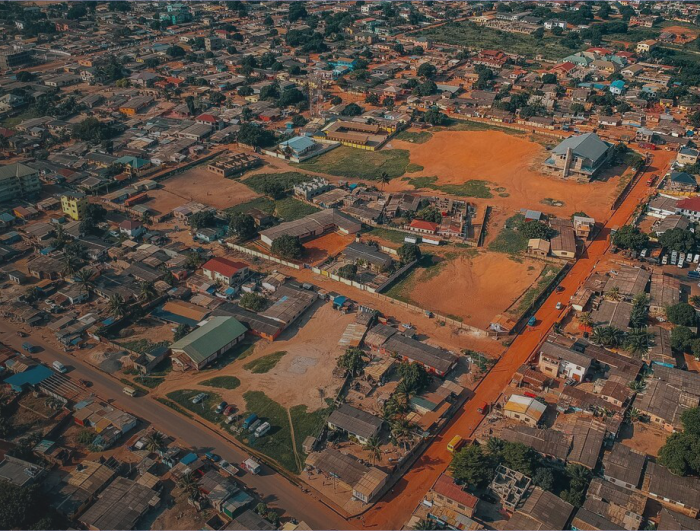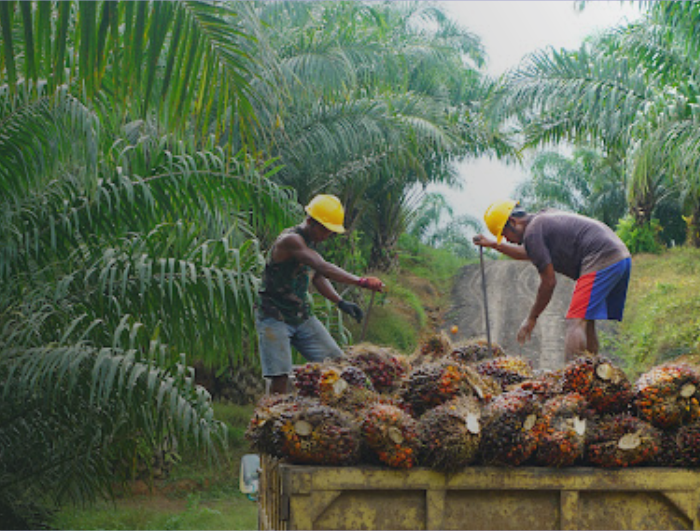Awoshie-Pokuase Road and Community Development Project

Awoshie-Pokuase Road and Community Development Project
The Awoshie-Pokuase Road and Community Development Project stands as a transformative infrastructure initiative aimed at improving urban mobility and promoting socio-economic growth within the Greater Accra Region of Ghana. This landmark project, undertaken in collaboration with Komen Investments Limited, represents a commitment to modernizing essential infrastructure while addressing the broader needs of the communities along the corridor.
Project Overview
Stretching across several key suburbs, the Awoshie-Pokuase Road links the Awoshie and Pokuase areas through an upgraded dual carriageway that significantly reduces travel time, decongests inner-city traffic, and enhances access to economic centers. The road spans approximately 15 kilometers and incorporates advanced drainage systems, pedestrian walkways, service roads, and improved street lighting. This project not only alleviates daily commuting challenges but also paves the way for long-term economic development in the region.
Komen Investments Limited’s Role
As a trusted local partner, Komen Investments Limited played an instrumental role in both the construction and community outreach components of the project. Our team supported site development, engineering consulting, and the implementation of sustainable construction practices that ensured durability, safety, and environmental compliance. By aligning our operations with the project’s long-term vision, Komen Investments Limited helped ensure that the project met international standards while remaining sensitive to local needs and resources.
Community-Centered Development
Beyond road construction, the project incorporated a strong focus on community development. Working closely with residents and stakeholders, Komen Investments Limited contributed to the upgrading of local infrastructure including drainage systems, sanitation facilities, and community schools. Our team actively engaged with local leaders to ensure that the project addressed pressing social needs, providing training and employment opportunities for skilled and unskilled labor from the surrounding areas.
Socio-Economic Impact
The Awoshie-Pokuase Road has transformed the socio-economic landscape of the affected communities. With reduced travel times and improved transport accessibility, small businesses have flourished, public transportation has become more efficient, and property values have increased. Komen Investments Limited’s involvement in this impactful project underscores our commitment to inclusive development—one that blends infrastructure enhancement with human-centered progress.
A Model for Sustainable Urban Growth
The success of the Awoshie-Pokuase Road and Community Development Project showcases what is possible when public infrastructure development is paired with community empowerment and strong public-private collaboration. Komen Investments Limited remains proud to have been a part of this strategic initiative, setting a benchmark for future road and urban development projects across Ghana and the West African region.
Programme for the Promotion of Perennial Crops
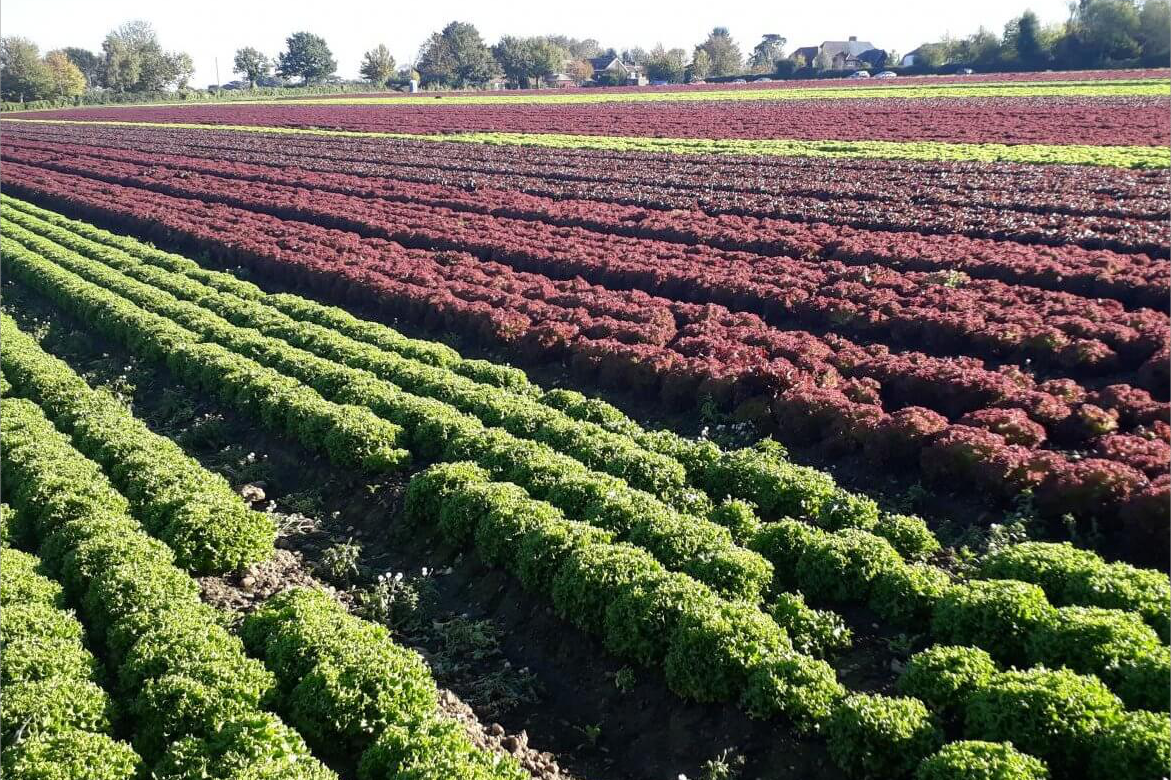
A Collaborative Agricultural Transformation Initiative by Komen Investments Limited
The Programme for the Promotion of Perennial Crops is a strategic agricultural development initiative spearheaded in collaboration with Komen Investments Limited. This visionary programme is designed to stimulate sustainable economic growth, enhance food security, and uplift rural livelihoods by focusing on the cultivation and commercialization of perennial crops across targeted regions.
Komen Investments Limited, in partnership with key stakeholders, brings its extensive experience in agribusiness development, supply chain management, and community engagement to ensure the programme delivers both environmental and socio-economic impact. The initiative supports local farmers, cooperatives, and agricultural entrepreneurs in transitioning from seasonal, short-cycle crops to more profitable and ecologically stable perennial alternatives.
Sustainable Agricultural Development
At the heart of the programme lies a commitment to long-term sustainability. Perennial crops such as cocoa, cashew, coffee, and oil palm are selected not only for their commercial value but also for their role in preserving soil health, reducing deforestation, and mitigating the effects of climate change. Through integrated land management and agroforestry systems, farmers are empowered to achieve consistent yields while restoring biodiversity.
Capacity Building and Farmer Empowerment
Komen Investments Limited has prioritized capacity building as a foundational pillar of the programme. Farmers receive hands-on training in best agricultural practices, pest and disease control, organic fertilization, and post-harvest management. The programme also introduces innovative tools and technologies to improve productivity and ensure farmers can compete in local and international markets.
Market Access and Value Chain Integration
One of the programme’s key strengths is its market-driven approach. By strengthening the value chain from farm to market, Komen Investments Limited ensures that farmers gain direct access to buyers, processing facilities, and export opportunities. The programme facilitates contract farming arrangements, cooperative development, and financing models that reduce risk and increase profitability.
Community Development and Economic Inclusion
Beyond agriculture, the programme is a catalyst for rural development. It promotes inclusive growth by integrating women, youth, and marginalized communities into every stage of the agricultural value chain. With improved incomes and job creation, communities experience greater financial stability and access to essential services such as education and healthcare.
Environmental Impact and Climate Resilience
By promoting crops that require less frequent replanting and support ecological regeneration, the programme contributes to climate resilience. Komen Investments Limited actively promotes environmentally conscious practices such as soil conservation, water resource management, and carbon sequestration through perennial cropping systems.
Conclusion
The Programme for the Promotion of Perennial Crops represents a bold step forward in redefining agricultural success through innovation, sustainability, and inclusivity. With Komen Investments Limited at the helm, this initiative not only transforms how crops are grown but also how farming communities thrive—ensuring lasting benefits for people, planet, and profit.
Rice Sector Support Project
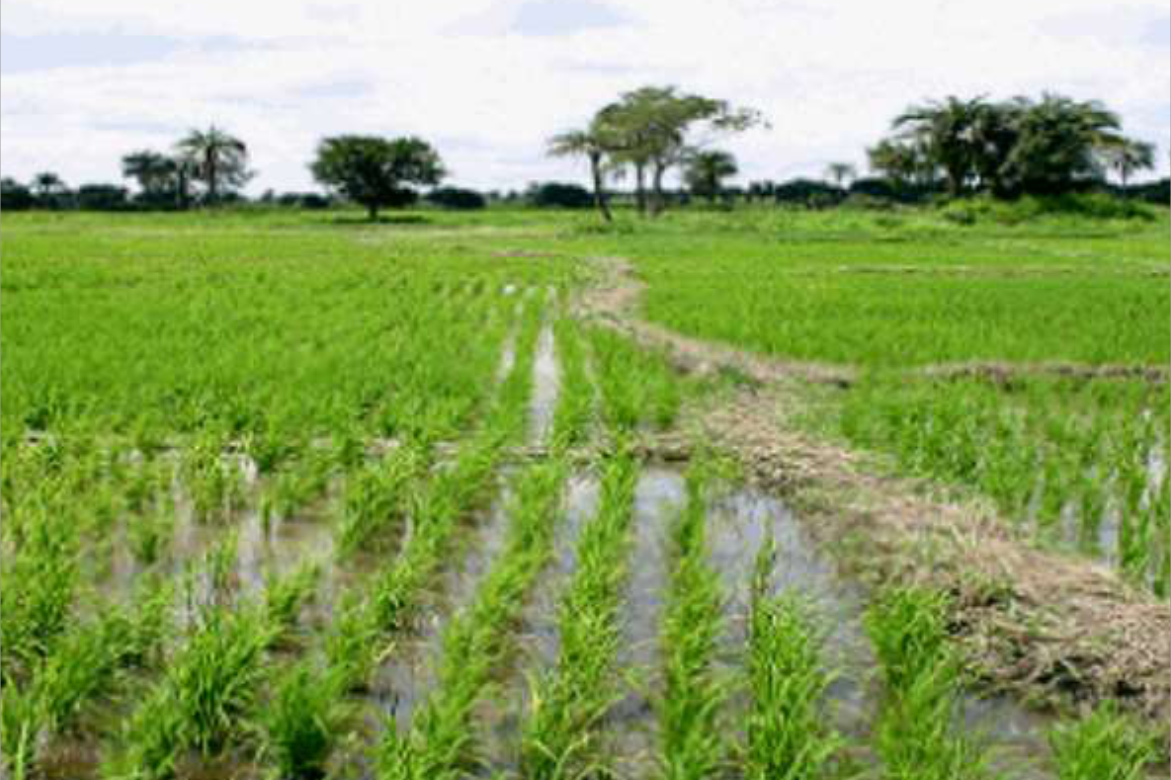
Overview of the Rice Sector Support Project in Ghana
The Rice Sector Support Project (RSSP) in Ghana is a transformative agricultural initiative aimed at boosting rice production, enhancing food security, and improving livelihoods across the country. As part of Ghana’s broader commitment to agricultural development and self-sufficiency in rice production, the project addresses both infrastructural and capacity gaps within the rice value chain.
Komen Investments Limited is proud to be a strategic collaborator on this impactful project. Through our partnership, we contribute innovative solutions and sustainable practices to ensure long-term success for rice farmers and stakeholders across the sector.
Komen Investments Limited’s Role and Contribution
In our collaboration on the Rice Sector Support Project, Komen Investments Limited brings extensive experience in agribusiness, supply chain management, and rural development. Our involvement includes the provision of agricultural inputs, mechanization services, technical training, and post-harvest support to smallholder rice farmers.
We work directly with local farming communities to introduce modern, climate-smart farming techniques that increase yield and reduce production costs. Our support also extends to marketing and value addition, ensuring farmers have access to fair markets and competitive pricing for their produce.
Project Impact and Outcomes
The partnership under the RSSP has already begun to show positive results. Rice farmers across selected regions of Ghana have reported improved productivity, better quality paddy, and greater access to irrigation infrastructure. Komen Investments Limited’s hands-on approach in training and field support has empowered many farmers to adopt more efficient and environmentally friendly farming methods.
Additionally, the project promotes inclusive growth by encouraging youth and women’s participation in the rice value chain, from production to processing and distribution. Our collaboration ensures that the benefits of the project reach every corner of the community.
Commitment to Sustainable Agriculture and National Food Security
Komen Investments Limited remains committed to supporting Ghana’s vision of achieving rice self-sufficiency. Through this collaboration on the Rice Sector Support Project, we are laying the groundwork for a more resilient and productive agricultural sector. By combining strategic planning, community engagement, and sustainable technologies, we are helping build a food-secure future for Ghana.
Looking Ahead
As the project progresses, Komen Investments Limited continues to explore innovative partnerships and scaling strategies that will further strengthen the rice value chain. Our goal is to make rice farming a profitable and dignified venture for every Ghanaian farmer involved.
Together with the government of Ghana and other key stakeholders, we are proud to be part of a national effort that not only feeds the nation but also fuels economic growth and rural development.
District Development Facility
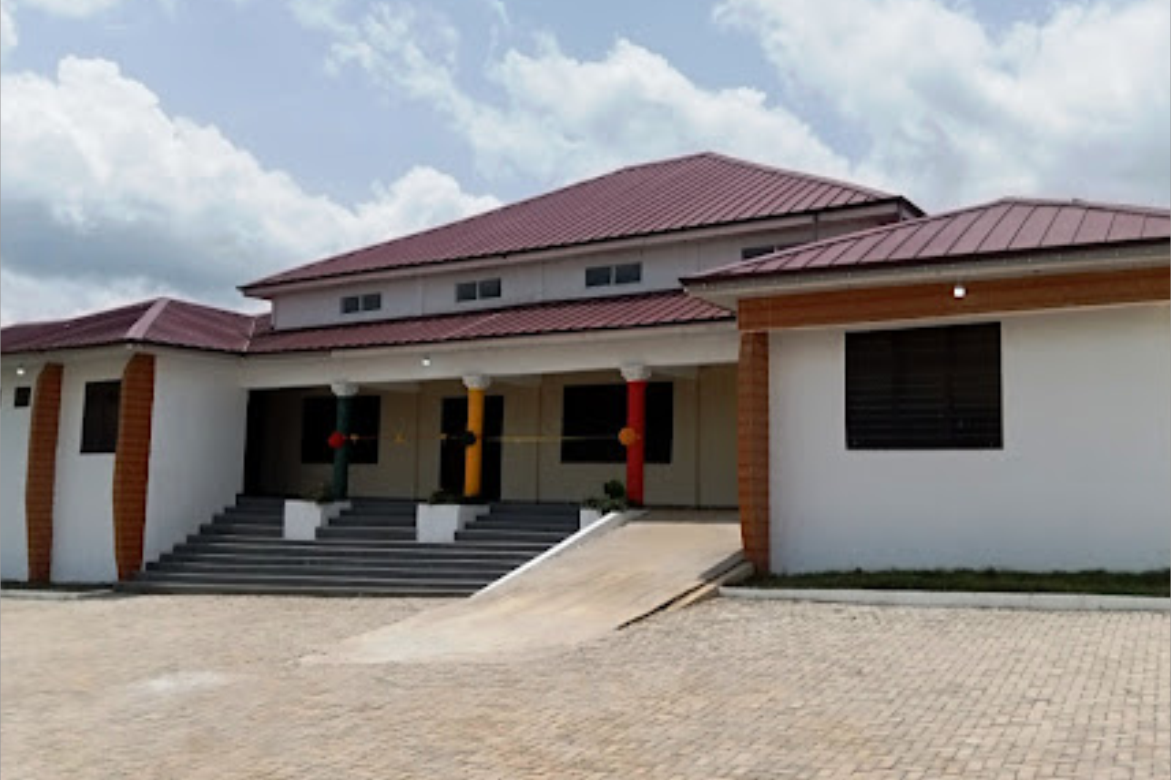
The District Development Facility (DDF) is a transformative initiative aimed at strengthening local governance, enhancing infrastructure, and promoting sustainable development at the district level across Ghana. As a proud collaborator in this impactful program, Komen Investments Limited brings extensive experience in infrastructure development, project management, and strategic consulting to support the government’s efforts to improve service delivery and stimulate socio-economic growth in local communities.
Project Background and Objectives
Launched as a national effort to bridge development gaps between urban and rural areas, the DDF seeks to empower Metropolitan, Municipal, and District Assemblies (MMDAs) by providing them with resources and technical support to implement locally prioritized projects. The core objectives of the DDF include improving public financial management, promoting transparency and accountability, and fostering citizen participation in governance and development planning.
Komen Investments Limited’s collaboration with the DDF is aligned with these goals. Our company contributes technical expertise, logistical coordination, and quality assurance to ensure that every project under the facility meets national standards and delivers lasting value to the communities served.
Scope of Work and Impact
Under the DDF framework, Komen Investments Limited has been actively involved in the construction and rehabilitation of essential infrastructure such as schools, health facilities, roads, and water supply systems across selected districts. Each project is tailored to address specific local needs, contributing to the overall improvement in living conditions and economic prospects of the beneficiary communities.
Our team works closely with district authorities, local contractors, and community stakeholders to deliver results that are inclusive, sustainable, and socially responsible. By promoting local employment and sourcing materials locally, the projects under DDF not only enhance infrastructure but also stimulate local economies.
Strategic Partnership and Commitment to Development
The collaboration between Komen Investments Limited and the District Development Facility is a testament to the power of public-private partnerships in achieving meaningful progress. We are committed to supporting the Government of Ghana’s decentralization agenda and contributing to the realization of the Sustainable Development Goals (SDGs), particularly in the areas of quality education, clean water and sanitation, and sustainable cities and communities.
Through transparency, innovation, and a deep commitment to excellence, Komen Investments Limited remains a reliable partner in national development. Our involvement in the District Development Facility continues to create long-term value, driving change from the grassroots and building a stronger, more equitable Ghana for all.
Water Supply and Sanitation Project in Brong Ahafo
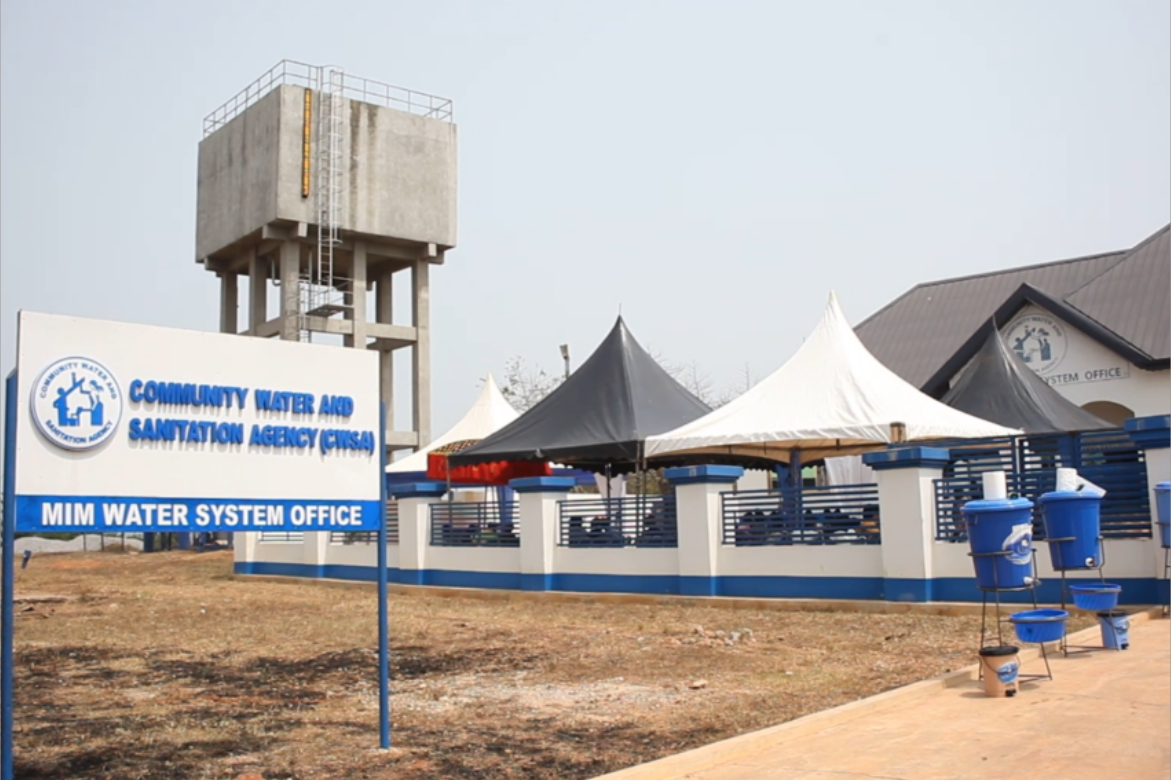
The Brong Ahafo Water Supply and Sanitation Project
One of the most basic human needs—access to clean water and better sanitation—is being addressed by a remarkable shift taking place in the centre of Ghana’s Brong Ahafo region. A collaborative project with Komen Investments Limited’s active participation, the Water Supply and Sanitation Project in Brong Ahafo is a shining example of sustainable development and community resilience. This all-encompassing intervention was created to address the historical issues in the area with public health, sanitation infrastructure, and water accessibility, especially in underprivileged rural and peri-urban populations.
Project Background and the Need for Intervention
Brong Ahafo, despite its rich agricultural potential and vibrant communities, has long struggled with inconsistent access to potable water. Many residents relied on unsafe sources such as rivers and unprotected wells, which contributed to waterborne diseases and hampered overall development. Sanitation facilities were either inadequate or entirely lacking in some areas, leading to widespread open defecation and associated health risks. Recognizing the urgent need for a structured, inclusive, and lasting solution, this project was conceptualized to bring hope and transformation to thousands of residents.
Komen Investments Limited’s Role and Commitment
Komen Investments Limited, known for its dedication to community-centered infrastructure development, played a critical role in the successful implementation of this project. As a trusted partner in engineering, procurement, and construction services across Ghana, our involvement was rooted in technical expertise, local engagement, and a long-term vision for regional development. Our team worked closely with governmental agencies, community leaders, and international development partners to ensure that the project met both international standards and local needs.
Scope and Objectives of the Project
The overarching goal of the Water Supply and Sanitation Project in Brong Ahafo was to improve access to safe drinking water and enhance sanitation facilities across multiple districts. The project aimed to reduce waterborne illnesses, increase school attendance—especially among girls—and foster healthier living conditions. Specific objectives included the construction of water treatment plants, boreholes, household and communal latrines, and the promotion of hygiene education programs to support behavioral change.
Water Supply Infrastructure and Development
One of the cornerstones of the project was the development and rehabilitation of water supply systems. Komen Investments Limited led the construction of mechanized boreholes, small-town water systems, and the installation of pipelines and reservoirs. These systems were powered by energy-efficient and solar-powered pumps to ensure sustainability and reduce operational costs. By integrating modern technology with practical design, these water systems now serve thousands of people year-round.
Sustainable Sanitation Solutions
Equally important was the improvement of sanitation infrastructure. The project saw the construction of ventilated improved pit (VIP) latrines in schools, markets, and public spaces. Households were also encouraged and supported to build their own toilets through micro-financing and community savings groups. Our approach emphasized sustainability and user-friendly designs that cater to the needs of women, children, and people with disabilities, ensuring that no one was left behind.
Community Involvement and Stakeholder Engagement
One of the unique aspects of this project was its strong emphasis on community engagement. From inception through completion, Komen Investments Limited prioritized listening to local voices, understanding cultural contexts, and incorporating traditional knowledge. Community Water and Sanitation Committees (WATSANs) were established and trained to manage the new facilities, creating a sense of ownership and long-term responsibility among residents.
Public Health and Hygiene Education
Recognizing that infrastructure alone is not enough, the project incorporated a robust hygiene promotion component. Through interactive workshops, school clubs, radio broadcasts, and door-to-door campaigns, residents were educated on the importance of handwashing, safe water storage, menstrual hygiene management, and disease prevention. These campaigns have led to a significant improvement in hygiene practices across the region.
School-Based WASH Programs
Educational institutions were a key focus of the sanitation effort. Komen Investments Limited, in collaboration with educational authorities, oversaw the installation of gender-sensitive sanitation facilities in schools. These included separate latrines for boys and girls, menstrual hygiene rooms, and handwashing stations. Teachers and pupils received WASH (Water, Sanitation, and Hygiene) training to create a supportive learning environment and reduce absenteeism due to illness or menstruation.
Innovative Technology Integration
Technology played an integral role in enhancing the effectiveness and efficiency of the project. GIS mapping was used to identify and monitor water points, while mobile platforms facilitated real-time data collection and reporting. Our team introduced remote monitoring systems to detect faults early and ensure prompt maintenance. These innovations increased accountability and extended the lifespan of infrastructure investments.
Capacity Building and Local Employment
The project also contributed to local economic growth by creating jobs and building capacity. Komen Investments Limited hired local labor for construction and maintenance, providing hands-on training in plumbing, masonry, and mechanical work. Local artisans were empowered to produce latrine slabs and other components, boosting income and transferring valuable skills that will benefit communities for years to come.
Gender Inclusion and Empowerment
A strong gender lens was applied throughout the project. Women were actively involved in decision-making, training programs, and WATSAN committees. This approach not only ensured that women’s specific needs were addressed but also empowered them as leaders and change agents within their communities. The result is a more inclusive and equitable approach to water and sanitation service delivery.
Environmental Sustainability Measures
Environmental sustainability was carefully integrated into every phase of the project. Sites were chosen to minimize ecological disruption, and water sources were tested for long-term viability. Solar energy was used to power pumps, and environmental education was provided to communities on preserving water bodies and avoiding contamination. The project leaves behind a model that balances development with ecological preservation.
Monitoring, Evaluation, and Accountability
A rigorous monitoring and evaluation framework was put in place to ensure transparency and continuous improvement. Komen Investments Limited worked with local authorities to track progress against key performance indicators such as water access rates, reduction in open defecation, and health outcomes. Feedback mechanisms allowed community members to report issues, suggest improvements, and stay informed about project developments.
Challenges Faced and Overcome
Like any large-scale development initiative, the project encountered several challenges, including logistical issues during the rainy season, resistance to behavioral change, and technical complications in rocky terrains. However, through adaptive management, open communication, and strong partnerships, these challenges were effectively addressed. The collaborative spirit between Komen Investments Limited and all stakeholders was instrumental in navigating obstacles.
Success Stories from the Field
Countless stories of transformation emerged as the project progressed. In one village, a mother of five reported a dramatic decline in cases of diarrhea and skin infections among her children. In another, schoolgirls expressed newfound confidence attending school during their menstrual cycle thanks to hygienic and private facilities. These testimonials are a powerful reminder of the human impact behind the infrastructure.
Economic and Social Impacts
Beyond improved health, the project has catalyzed social and economic benefits. Reduced time spent fetching water—especially for women—has freed up time for income-generating activities and education. Improved sanitation has enhanced dignity and social cohesion. Community members now take pride in their surroundings, and villages are becoming more attractive places to live and work.
Replication and Scaling Opportunities
The success of the Brong Ahafo project has inspired interest in replicating the model in other regions of Ghana. Lessons learned and best practices are being documented and shared with development partners and government entities. Komen Investments Limited is poised to bring its expertise and community-based approach to new projects across the country.
Partnerships and Institutional Support
The success of this project was made possible through strong partnerships. Governmental bodies provided regulatory guidance and support, while donor agencies and NGOs contributed funding and technical assistance. Komen Investments Limited served as a critical bridge, translating strategic vision into tangible outcomes on the ground. The collaboration has strengthened institutional frameworks for future water and sanitation initiatives.
Alignment with National and Global Goals
This project directly contributes to Ghana’s national development strategies and aligns with the United Nations Sustainable Development Goal 6—Clean Water and Sanitation for All. By expanding access to water and sanitation, promoting hygiene, and fostering resilience, the project supports broader efforts to reduce poverty, enhance education, and promote gender equality.
Post-Implementation Support and Maintenance
Sustainability beyond project completion has been a key priority. Komen Investments Limited helped establish maintenance protocols, spare parts supply chains, and financing mechanisms for repairs. Local technicians were trained to troubleshoot and maintain systems, while ongoing support is available through district-level WASH offices and NGOs. This ensures that infrastructure continues to serve communities effectively for the long term.
Lessons Learned and Future Outlook
Several critical lessons have emerged, including the importance of early community engagement, gender-sensitive designs, and the integration of hygiene education. Flexibility, cultural sensitivity, and innovation have proven vital to success. As we look to the future, Komen Investments Limited remains committed to applying these insights to future projects and continuing its role as a catalyst for sustainable development.
A Lasting Legacy of Change
The Water Supply and Sanitation Project in Brong Ahafo is more than a set of infrastructure interventions—it is a legacy of hope, dignity, and progress. Through collaboration, innovation, and determination, lives have been changed and communities uplifted. For Komen Investments Limited, this project stands as a proud testament to our mission of building infrastructure that transforms lives and empowers the people of Ghana.
Kpong Generating Station Retrofit Project
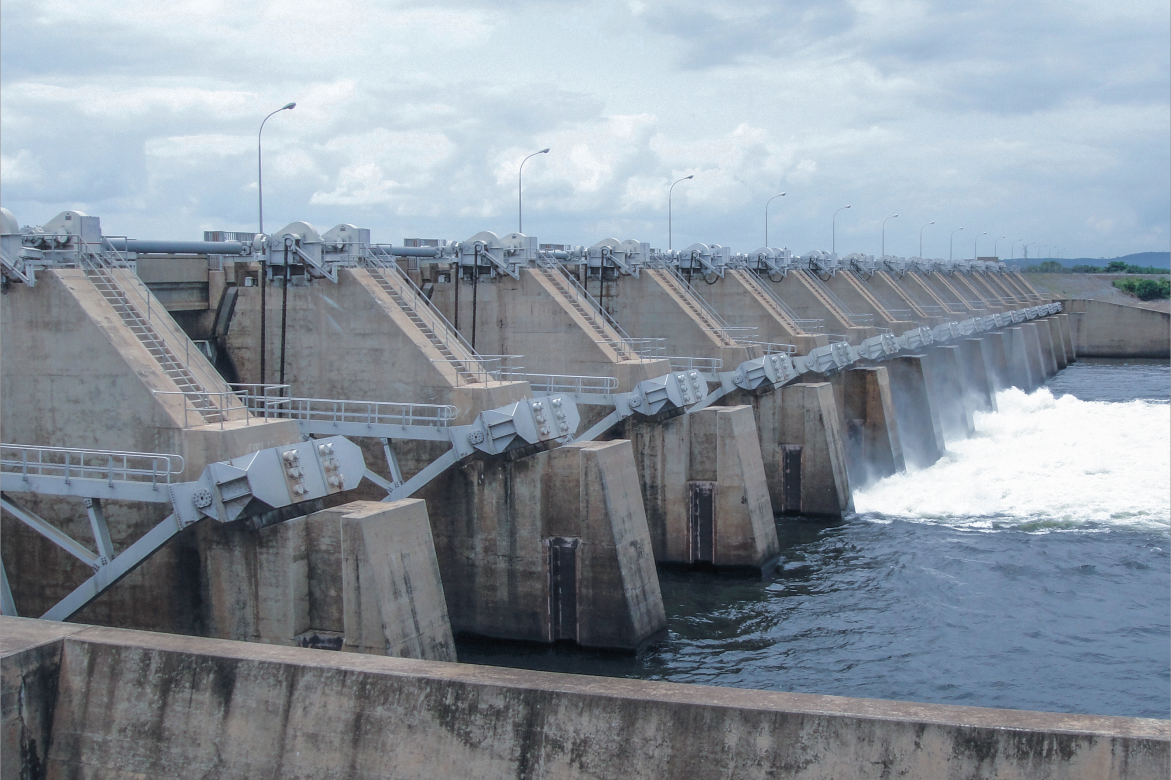
The Kpong Generating Station Retrofit Project represents a monumental collaboration in Ghana’s power sector, with Komen Investments Limited playing a critical role in its successful execution. Situated along the lower Volta River, the Kpong Generating Station (KGS) is a strategic hydropower facility first commissioned in 1982. After decades of operation, it became essential to undertake a retrofit to enhance efficiency, reliability, and safety standards. The project is a shining example of how strategic partnerships can rejuvenate aging infrastructure for long-term national benefit.
Komen Investments Limited was honored to be part of this ambitious endeavor, collaborating closely with other stakeholders to deliver sustainable energy solutions for Ghana’s growing population. Our involvement spanned multiple phases of the project, including engineering consultations, project management, procurement oversight, and on-site technical support. This collaborative environment was key to ensuring that the project met international standards while remaining contextually tailored to Ghana’s specific energy needs.
The primary goal of the retrofit project was to modernize the Kpong Generating Station’s four turbine-generator units, which had experienced natural wear and tear over the years. These upgrades aimed to restore lost capacity and increase efficiency, thus helping the Volta River Authority (VRA) secure energy supply without expanding physical footprint or impacting the surrounding ecosystem. The enhancements also prioritized environmental sustainability and long-term operational reliability.
Komen Investments Limited brought its engineering and logistical expertise to the table, ensuring that all refurbishments adhered to both Ghanaian and international engineering codes. Our team collaborated with global equipment manufacturers to supply state-of-the-art components for turbine upgrades, generator rewinds, and the replacement of outdated control systems. This involved precise planning and quality assurance mechanisms to ensure seamless integration into the existing infrastructure.
Throughout the retrofit, safety remained a top priority. As a company, Komen Investments Limited implemented robust health, safety, and environmental (HSE) protocols, which were aligned with the VRA’s standards and those of international partners. Daily site inspections, safety drills, and continuous employee training ensured that all workers operated in a secure and protected environment.
One of the defining aspects of the project was the extensive civil and electromechanical rehabilitation work carried out. From repairing turbine casings to upgrading intake gates and penstocks, every facet of the facility was modernized. Komen Investments Limited’s project teams worked tirelessly to ensure that these tasks were completed on schedule and with minimal disruption to the surrounding communities.
Technology played a significant role in the transformation. Modern SCADA (Supervisory Control and Data Acquisition) systems were installed to allow real-time monitoring and automation of plant operations. These systems drastically improved efficiency, making it easier for the station to respond to fluctuations in demand. Komen Investments Limited’s ICT specialists contributed technical know-how to help configure and install these systems, ensuring robust and resilient control frameworks.
Another major improvement involved the installation of new excitation systems and voltage regulators. These components are critical to maintaining grid stability and generator synchronization. Our company facilitated the integration process by working hand-in-hand with OEM (Original Equipment Manufacturer) representatives to test and calibrate the equipment under various load conditions.
The project also required a substantial reconfiguration of the station’s auxiliary systems. This included upgrading cooling systems, lubricating oil circuits, and fire protection systems. Each upgrade required meticulous attention to detail, as well as coordination across different engineering teams. Komen Investments Limited oversaw much of this work, ensuring proper sequencing and adherence to quality benchmarks.
Environmental stewardship was integral to the project’s values. Measures were taken to minimize water pollution and prevent any disruption to the aquatic ecosystem of the Volta River. Waste management protocols were enforced on-site, and Komen Investments Limited played a leadership role in maintaining environmentally responsible practices throughout the retrofit duration.
Community engagement was another crucial element. The project respected the needs of local populations and ensured that their livelihoods were not negatively impacted during implementation. Komen Investments Limited joined hands with local leaders to facilitate dialogue, support CSR (Corporate Social Responsibility) activities, and ensure mutual understanding between the project team and nearby residents.
Training and capacity building were embedded into the project scope. Recognizing the importance of local expertise, the project provided hands-on technical training to VRA staff and young Ghanaian engineers. Komen Investments Limited helped organize workshops and mentorship programs to transfer knowledge on modern hydroelectric technologies and operational best practices.
The success of the Kpong Generating Station Retrofit Project also lies in its positive economic impact. The enhanced efficiency of the plant translates into lower operational costs and higher electricity output, which ultimately supports Ghana’s economic growth. Komen Investments Limited takes pride in contributing to a project that stimulates national development while promoting industrialization.
One of the standout features of the retrofit was its logistical complexity. Transporting massive equipment and coordinating installation across multiple work fronts required a high level of project management acumen. Our company deployed seasoned logistics experts to manage customs clearance, inland transportation, and warehousing, ensuring that critical components arrived on-site in a timely and secure manner.
In addition to equipment delivery, testing and commissioning formed an essential phase of the project. Each unit underwent rigorous testing to ensure that it met performance criteria under simulated operational conditions. Komen Investments Limited played a supervisory role during commissioning, working alongside OEM technicians and VRA engineers to validate operational benchmarks.
The collaborative nature of the project extended beyond national borders. The retrofit involved partnerships with European and North American engineering firms, and Komen Investments Limited acted as a bridge between these international players and local stakeholders. Our bilingual project managers and technical coordinators facilitated smooth communication and execution across all entities involved.
Timely completion was critical to avoid disruption in electricity generation. Despite global supply chain disruptions and occasional weather-related delays, the project remained on track. Komen Investments Limited’s agile project scheduling tools and proactive risk management strategies helped ensure that each milestone was met with precision and professionalism.
Quality assurance and quality control (QA/QC) protocols were embedded in every stage of the project. From material inspections to performance verifications, nothing was left to chance. Our company maintained a strong on-site QA/QC presence, continuously auditing work processes and coordinating third-party inspections to uphold engineering excellence.
Komen Investments Limited’s involvement in the Kpong Generating Station Retrofit Project marks a significant milestone in our company’s history. It demonstrates our commitment to infrastructure development, technical excellence, and nation-building. It also reflects our capacity to engage in complex, multi-stakeholder projects with long-term strategic benefits.
The project also illustrates the broader value of rehabilitating existing infrastructure instead of building anew. By extending the life of the Kpong Generating Station, Ghana has preserved valuable assets while optimizing energy production. This model aligns with sustainable development goals and serves as an example for similar projects across Africa.
Our participation has further strengthened our reputation in the energy sector. As a trusted engineering and project management firm, Komen Investments Limited has proven its ability to deliver high-impact solutions that meet stringent international standards. This project showcases our core strengths: collaboration, technical depth, and a vision for sustainable progress.
Moving forward, Komen Investments Limited remains committed to supporting Ghana’s energy transformation. Whether through hydropower, solar, or thermal innovations, we believe in building a resilient and inclusive energy future. The Kpong retrofit is just one chapter in our larger mission to power progress for generations to come.
In conclusion, the Kpong Generating Station Retrofit Project stands as a beacon of engineering success, environmental care, and community engagement. It exemplifies what is possible when public institutions, private sector players like Komen Investments Limited, and international partners work together in harmony. The project has not only revitalized a critical piece of infrastructure but also laid a foundation for a brighter and more empowered Ghana.
Ghana Urban Management Pilot Project (GUMPP)
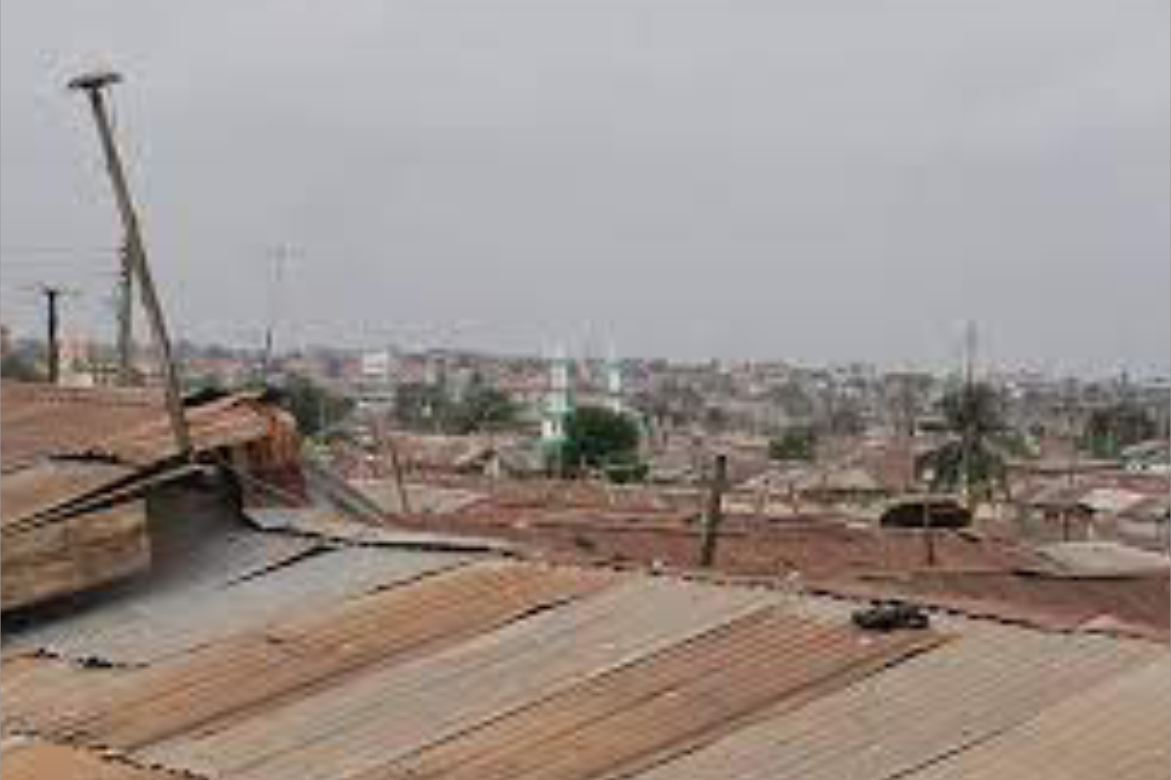
Introduction to the Ghana Urban Management Pilot Project (GUMPP)
The Ghana Urban Management Pilot Project (GUMPP) stands as a landmark initiative aimed at enhancing urban governance and improving infrastructure in selected municipalities across Ghana. This pioneering project was designed to address the challenges associated with rapid urbanization, with a clear focus on promoting sustainable development, improving municipal services, and fostering inclusive growth in urban centers.
Collaboration with Komen Investments Limited
Komen Investments Limited played a significant role in the successful implementation of GUMPP, contributing its technical expertise, project management capabilities, and deep understanding of local conditions. The collaboration between Komen Investments Limited and key stakeholders, including the Government of Ghana and international partners, formed the backbone of the project’s success and long-term sustainability.
Background and Rationale
Urbanization in Ghana has been accelerating, with an increasing number of people moving into cities in search of economic opportunities. However, this growth has often outpaced the capacity of local governments to provide adequate infrastructure and services. GUMPP was born out of the need to build municipal capacities and upgrade urban systems to meet the demands of growing populations.
Project Goals and Objectives
The primary goal of GUMPP was to strengthen urban management, enhance infrastructure, and improve service delivery in targeted cities. By doing so, the project aimed to promote economic development, reduce urban poverty, and improve the quality of life for urban residents. Specific objectives included improving financial management, urban planning, and service delivery in selected metropolitan areas.
Pilot Cities and Municipal Focus
GUMPP was implemented in four key urban centers: Tamale, Sekondi-Takoradi, Kumasi, and Ho. These cities were selected due to their strategic economic importance and the challenges they faced in managing urban growth. The pilot nature of the project allowed for tailored approaches in each city, serving as a model for broader national replication.
Institutional Strengthening and Governance
One of the critical pillars of GUMPP was enhancing the institutional capacity of local authorities. Komen Investments Limited supported training programs, technical assistance, and institutional audits to empower municipal staff. These efforts contributed to improved transparency, accountability, and efficiency in urban governance.
Infrastructure Development and Upgrades
GUMPP brought tangible improvements to urban infrastructure. Roads, drainage systems, markets, and sanitation facilities were upgraded or newly constructed. Komen Investments Limited provided project management support and quality control to ensure that all infrastructure met high standards and addressed the real needs of communities.
Urban Planning and Land Use Management
A core component of the project focused on effective land use and urban planning. With support from Komen Investments Limited, municipal assemblies developed and implemented strategic plans that guided urban growth, zoning, and infrastructure development. This planning helped reduce congestion and created more livable urban spaces.
Financial Management Reforms
GUMPP also aimed to strengthen the financial management systems of the participating municipalities. Komen Investments Limited played a key advisory role in the implementation of revenue enhancement strategies, budget reforms, and transparent accounting practices. These reforms enabled municipalities to better allocate resources and improve fiscal health.
Community Engagement and Participation
Recognizing that sustainable urban development depends on local support, GUMPP placed a strong emphasis on community engagement. Public consultations and participatory planning sessions allowed residents to voice their needs and contribute to decision-making. Komen Investments Limited facilitated these interactions, ensuring that the project remained people-centered.
Environmental Sustainability
Environmental considerations were integrated into all aspects of GUMPP. Drainage projects, green spaces, and waste management systems were designed to enhance environmental resilience and reduce flood risks. Komen Investments Limited ensured that environmental impact assessments guided all major interventions.
Gender and Social Inclusion
Social inclusion was a cross-cutting theme of the project. GUMPP actively worked to ensure that women, youth, and vulnerable populations were represented in planning and received equitable access to services. Komen Investments Limited implemented gender-responsive strategies and monitored inclusion metrics to support this goal.
Capacity Building and Training
Building long-term capacity was essential for sustainability. Training programs for local government staff, engineers, planners, and contractors were implemented throughout the project. Komen Investments Limited co-designed and delivered these programs to build local ownership and expertise.
Monitoring and Evaluation
A robust monitoring and evaluation framework was established to track progress and ensure accountability. Komen Investments Limited collaborated with local authorities and international partners to collect data, assess performance, and make course corrections where necessary.
Partnership and Funding
GUMPP was jointly funded by the Government of Ghana, the French Development Agency (AFD), and other international donors. Komen Investments Limited’s role as a trusted local partner helped streamline communication and coordination among stakeholders, enhancing the efficiency of fund utilization.
Challenges and Lessons Learned
As with any large-scale urban development initiative, GUMPP faced several challenges, including delays in procurement, bureaucratic hurdles, and capacity gaps. However, through adaptive project management and stakeholder collaboration, these challenges were overcome. Komen Investments Limited played a critical role in identifying bottlenecks and proposing innovative solutions.
Technology and Innovation
The project embraced modern technology for urban management. GIS mapping, digital financial systems, and online citizen feedback platforms were introduced. Komen Investments Limited facilitated technology adoption and ensured that local teams were trained to use these tools effectively.
Impact on Local Economies
The infrastructure and institutional improvements brought about by GUMPP had a positive ripple effect on local economies. Improved markets, roads, and sanitation facilities boosted commerce, reduced travel time, and improved public health. Komen Investments Limited conducted impact studies to document these outcomes and inform future projects.
Replication and National Scale-Up
Based on the success of the pilot cities, the Government of Ghana and partners have considered scaling up GUMPP principles to other municipalities. The best practices and tools developed—many of which were shaped by Komen Investments Limited—are being used to inform broader national urban policies.
Contribution to National Development Goals
GUMPP aligned closely with Ghana’s national development strategies, including the Ghana Shared Growth and Development Agenda. It also contributed to the achievement of several Sustainable Development Goals (SDGs), particularly those related to sustainable cities and communities, infrastructure, and governance.
Legacy and Sustainability
The legacy of GUMPP goes beyond physical infrastructure. It has laid the foundation for modern urban management in Ghana. The capacity built, systems reformed, and communities empowered through the project, with strong contributions from Komen Investments Limited, continue to generate benefits long after the official project end.
Komen Investments Limited’s Commitment to Development
Komen Investments Limited remains committed to driving development and sustainability in Ghana. Our participation in GUMPP is a testament to our ability to deliver results in complex multi-stakeholder environments. We continue to offer consulting, construction, and advisory services that align with national and international development priorities.
Conclusion
The Ghana Urban Management Pilot Project has proven to be a transformational initiative for Ghana’s urban future. Through a collaborative and inclusive approach, and with the dedicated involvement of Komen Investments Limited, the project addressed critical urban challenges and paved the way for smarter, more resilient, and more inclusive cities. As urbanization continues, the lessons of GUMPP serve as a blueprint for what is possible when public and private sectors work together with a shared vision.
Outgrower and Value Chain Fund Phase I
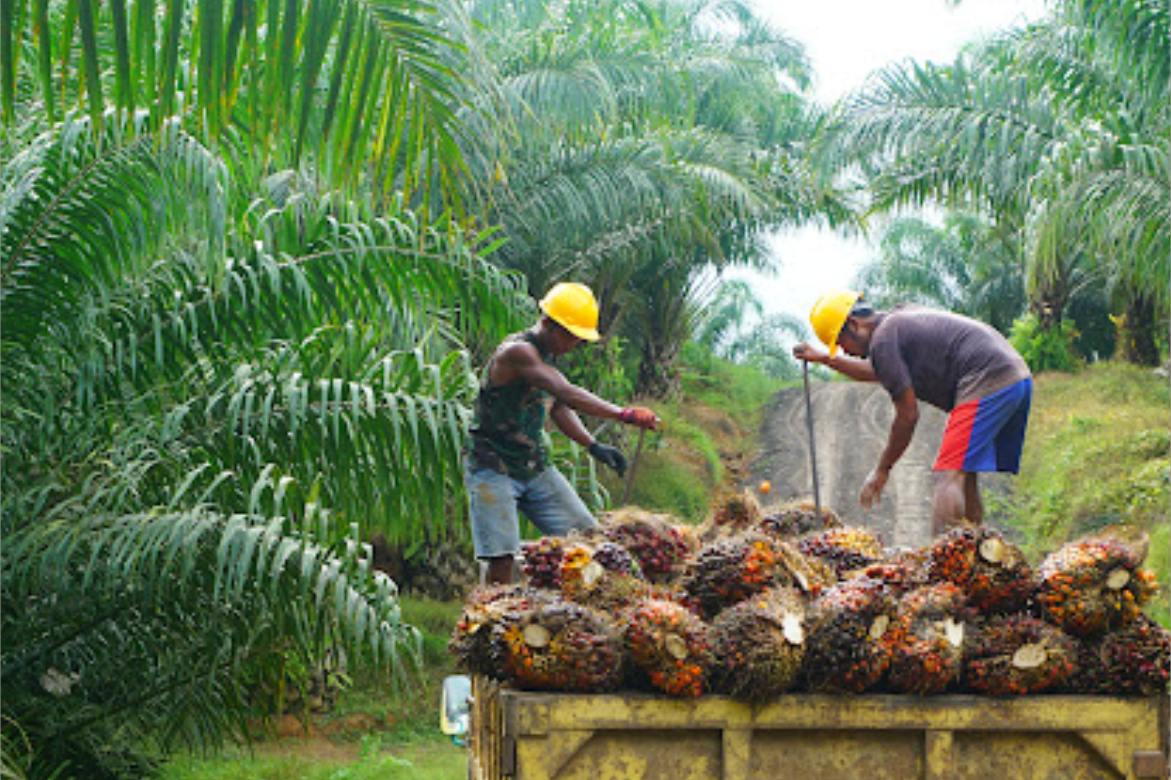
Introduction to the Ghana Outgrower and Value Chain Fund Phase I
The Ghana Outgrower and Value Chain Fund Phase I (GOVCF I) was a groundbreaking initiative aimed at addressing key challenges in the agricultural sector in Ghana. The project was designed to strengthen the capacity of smallholder farmers while promoting sustainable value chain development. GOVCF I focused on enhancing productivity, improving livelihoods, and encouraging agro-industrial partnerships across the country.
Komen Investments Limited, a dynamic player in agribusiness and rural development, was proud to be a strategic collaborator in the implementation of this transformative project. Our participation reflected our ongoing commitment to empowering Ghana’s agricultural communities and aligning with the national goal of achieving food security and economic resilience.
Project Background and Objectives
Launched with the support of the German Development Bank (KfW) and implemented under the Ministry of Finance, GOVCF I was a financial intervention targeting value chain actors, particularly outgrower schemes. The fund was intended to increase access to long-term financing for farmers and agribusinesses involved in key agricultural commodities.
One of the primary objectives was to reduce rural poverty through inclusive and climate-smart agriculture. By focusing on productive partnerships between agribusinesses and smallholder farmers, the project helped bridge gaps in financing, technology, and market access that had long constrained the agricultural value chain in Ghana.
Target Crops and Sectors
GOVCF I prioritized several strategic crops that have both local consumption and export potential. These included oil palm, rubber, mango, rice, sorghum, and maize. The inclusion of these commodities was based on their economic importance and the capacity to scale production under outgrower arrangements.
Komen Investments Limited worked closely with stakeholders across these value chains, offering technical and strategic support that ensured the smooth rollout of projects under each crop sector. By helping farmers transition from subsistence to commercial farming, our role became pivotal in enhancing both yields and incomes.
Role of Outgrower Schemes
The outgrower model served as the cornerstone of GOVCF I. It brought together nucleus agribusinesses and surrounding smallholder farmers into mutually beneficial production arrangements. These schemes allowed farmers to access inputs, technical know-how, and guaranteed off-take agreements, while the nucleus companies ensured consistent supply to meet growing market demands.
As a trusted partner, Komen Investments Limited facilitated the creation and operationalization of these schemes. Our team provided field-level coordination, agronomic support, and monitoring services, ensuring that both the farmers and the agribusinesses benefited from a structured and transparent relationship.
Financing Structure and Support Mechanism
The Ghana Outgrower and Value Chain Fund operated through a blend of long-term loans and matching grants. These financial instruments were extended to agribusinesses engaged in inclusive value chain development, which then worked with outgrower farmers. The fund minimized the risk associated with agricultural lending and enhanced the creditworthiness of participating companies.
Komen Investments Limited played a key role in guiding agribusinesses through the funding process. We assisted in developing bankable proposals, aligning financial projections with agronomic realities, and ensuring compliance with fund requirements. This support allowed clients to focus on productivity and expansion.
Capacity Building and Farmer Training
Beyond financing, GOVCF I placed a strong emphasis on capacity building. Farmers were trained on good agricultural practices (GAP), post-harvest handling, and climate-resilient techniques. These interventions were essential in building knowledge and fostering a sense of ownership and professionalism among smallholders.
Komen Investments Limited contributed significantly by delivering tailored training modules across project sites. Our facilitators engaged farmers in participatory learning sessions, field demonstrations, and peer-to-peer learning platforms. The result was a noticeable improvement in farm-level efficiency and quality of produce.
Enhancing Market Access
A major bottleneck for smallholder farmers has traditionally been access to reliable markets. GOVCF I addressed this challenge by promoting contractual agreements between farmers and off-takers. These arrangements created predictable income streams and reduced post-harvest losses due to delayed sales.
Our company, Komen Investments Limited, brokered many of these market linkages. We leveraged our network of buyers, processors, and exporters to ensure that farm produce found its way to premium markets. This support helped farmers realize better prices and reinforced their commitment to quality standards.
Technology Transfer and Innovation
Modern agriculture is increasingly driven by technology, and GOVCF I did not fall short in integrating innovation into its implementation. From improved seed varieties to precision farming tools, the project emphasized the use of science to enhance productivity and resilience.
Komen Investments Limited introduced several innovations to participating outgrowers. These included mobile-based farm advisory systems, GIS-based land mapping, and smart irrigation solutions. By combining tradition with innovation, we enabled farmers to produce more with less.
Gender Inclusion and Youth Participation
A key aspect of GOVCF I was its dedication to inclusivity. The project actively promoted the participation of women and youth in agriculture. Women were supported in accessing inputs, land, and credit, while young people were introduced to agribusiness as a viable career path.
Komen Investments Limited designed and implemented several gender-responsive programs. We organized youth incubation sessions and supported female-led farming cooperatives with targeted grants and training. Our approach ensured that no demographic was left behind in the transformation agenda.
Environmental Sustainability
Environmental stewardship was integrated into all aspects of the project. GOVCF I advocated for sustainable land use, responsible input application, and agroforestry practices. This focus was especially relevant in areas prone to land degradation and climate variability.
Our field agents ensured that environmental compliance was not only adhered to but became second nature to our farmer partners. Komen Investments Limited introduced practices such as cover cropping, integrated pest management (IPM), and organic fertilization to promote soil health and long-term productivity.
Monitoring, Evaluation, and Impact Assessment
Effective monitoring and evaluation (M&E) were essential for tracking progress and learning. GOVCF I developed robust M&E frameworks that enabled timely data collection and informed decision-making at all levels.
Komen Investments Limited’s M&E team worked alongside project managers and donor agencies to capture key performance indicators. Through regular impact assessments, we were able to document gains in income, yield, and food security among beneficiaries.
Success Stories and Testimonials
Numerous success stories emerged from GOVCF I. Smallholder farmers who previously struggled with productivity and income witnessed life-changing improvements. Increased yields, better market prices, and stronger community networks became the norm in project areas.
Several beneficiaries under Komen Investments Limited’s coordination shared how the program enabled them to pay school fees, build new homes, and expand their operations. These testimonials serve as powerful reminders of the project’s relevance and long-term value.
Institutional Collaboration
The success of GOVCF I was largely due to the strong collaboration between public institutions, financial institutions, agribusinesses, and development partners. The Ministry of Food and Agriculture (MoFA), the Ministry of Finance, and KfW all played instrumental roles in driving the agenda forward.
Komen Investments Limited collaborated with these institutions to harmonize efforts and share insights. Our involvement in stakeholder engagements and policy dialogues ensured that the experiences on the ground informed strategic direction at the national level.
Challenges and Lessons Learned
Like any large-scale agricultural intervention, GOVCF I faced several challenges, including weather-related disruptions, fluctuating input costs, and delays in credit disbursement. However, these obstacles provided valuable lessons in resilience and adaptive management.
Komen Investments Limited developed contingency plans and risk mitigation strategies that helped participating farmers weather these difficulties. Our ability to learn, adapt, and remain solution-focused was key to navigating the complexities of implementation.
Long-Term Impact and Sustainability
The sustainability of GOVCF I’s achievements is evident in the continued growth of participating value chains. The institutional frameworks, farming systems, and market linkages established under the project continue to thrive years after the first phase concluded.
Our company continues to support these gains by offering post-project advisory services, linking farmers to new opportunities, and scaling up best practices. Komen Investments Limited remains committed to the vision of a self-sustaining and inclusive agricultural sector.
Contribution to Ghana’s Development Goals
GOVCF I directly supported several goals of Ghana’s national development agenda, including poverty reduction, food security, and rural industrialization. It also contributed to the United Nations Sustainable Development Goals (SDGs), especially those related to zero hunger, decent work, and climate action.
Komen Investments Limited is proud to have contributed to these broader goals. Our participation went beyond business — it was a partnership for national transformation and generational change.
Partnership with Financial Institutions
GOVCF I worked through participating financial institutions (PFIs), which helped channel funding to agribusinesses under favorable terms. This mechanism also built the capacity of banks to understand and serve the agriculture sector better.
Komen Investments Limited facilitated many of these relationships, supporting both agribusinesses and banks with project documentation, risk assessments, and disbursement tracking. This role was crucial in ensuring transparency and financial discipline.
Policy Advocacy and Reform
The experiences gained during GOVCF I helped inform policy discussions on agriculture finance, land tenure, and rural development. Lessons from the project contributed to shaping future iterations and complementary initiatives.
Komen Investments Limited joined forums and policy roundtables to advocate for improved agricultural policy frameworks. Our field insights brought a practical perspective to the policymaking process and helped bridge the gap between the grassroots and government.
Digitalization and Data Management
Data was central to the success of the project. GOVCF I integrated digital tools for farmer registration, data collection, and impact tracking. This digital shift improved transparency and responsiveness across the board.
Komen Investments Limited adopted several digital platforms to support this effort. We built farmer databases, used mobile data collection tools, and provided dashboards to partners for real-time analysis. These innovations improved decision-making at every level.
Expansion and Replication Potential
The successful implementation of Phase I laid a strong foundation for future phases of the fund. The model is replicable and adaptable to different regions and commodities, both within and beyond Ghana.
Komen Investments Limited is currently exploring similar collaborations in other regions, using the GOVCF I experience as a blueprint. Our scalable model offers promise for regional integration and cross-border agricultural investment.
Conclusion and the Way Forward
The Ghana Outgrower and Value Chain Fund Phase I was more than just a financial program — it was a catalyst for systemic change. It demonstrated that with the right partnerships, innovative financing, and inclusive models, agricultural transformation in Ghana is not only possible but inevitable.
As a proud partner, Komen Investments Limited celebrates the achievements of GOVCF I and looks forward to continued collaboration in future agricultural development programs. Together, we can continue to uplift communities, build resilient food systems, and shape the future of agribusiness in Ghana and beyond.
Urban Transport Project (UTP)

Urban Transport Project (UTP) – A Transformative Collaboration with Komen Investments Limited
The Urban Transport Project (UTP) is a landmark initiative aimed at reshaping the future of city mobility through sustainable, inclusive, and efficient transport infrastructure. As a proud collaborator, Komen Investments Limited has played a pivotal role in delivering innovative solutions and strategic investment to improve urban transportation systems in rapidly growing metropolitan areas.
Enhancing Mobility and Accessibility
The UTP’s primary goals are to lessen traffic, support public transportation, and give all residents safer and easier access to mobility options. The initiative enhances connectivity between underserved communities, business centres, and neighbourhoods by emphasising integrated transportation networks. Through this collaboration, Komen Investments Limited has helped to design and execute multimodal transportation options, including as smart traffic control systems, pedestrian walkways, and bus lanes.
Innovation through Strategic Investment
Komen Investments Limited brought in extensive expertise in infrastructure development, public-private partnership frameworks, and modern financing strategies. Our team worked closely with key stakeholders to ensure timely project execution, cost efficiency, and long-term value. From feasibility studies and environmental impact assessments to procurement oversight and resource mobilization, our involvement ensured that the Urban Transport Project aligned with both national development goals and international best practices.
Sustainable Development Goals in Action
The UTP directly supports the UN’s Sustainable Development Goals, particularly those related to sustainable cities, climate action, and economic growth. Komen Investments Limited prioritized eco-friendly construction methods, energy-efficient transport modes, and community engagement throughout the project lifecycle. Our shared vision with other partners ensures that urban mobility improvements not only serve today’s population but also safeguard the future.
A Model for Future Urban Infrastructure
The Urban Transport Project stands as a model for how public-private partnerships can deliver impactful results in urban planning and development. Komen Investments Limited is proud to be at the forefront of this transformation, helping to create more livable cities through smart infrastructure, collaborative investment, and visionary execution.
Agency Optimization

From the designers and engineers who are creating the next generation of web and mobile experiences, to anyone putting a website together for the first time. We provide elegant solutions that set new standards for online publishing.
Digital technology has made our world more transparent and interconnected, posing new challenges and opportunities for every business. A holistic, user-centric perspective is what truly sets one apart.

How We Work
From the designers and engineers who are creating the next generation of web and mobile experiences, to anyone putting a website together for the first time. We provide elegant solutions that set new standards for online publishing.
Digital technology has made our world more transparent and interconnected, posing new challenges and opportunities for every business. A holistic, user-centric perspective is what truly sets one apart.
Optimization Statistics
From the designers and engineers who are creating the next generation of web and mobile experiences, to anyone putting a website together for the first time. We provide elegant solutions that set new standards for online publishing.
Digital technology has made our world more transparent and interconnected, posing new challenges and opportunities for every business. A holistic, user-centric perspective is what truly sets one apart. together for the first time. We provide elegant solutions.
From the designers and engineers who are creating the next generation of web and mobile experiences, to anyone putting a website together for the first time. We provide elegant solutions that set new standards for online publishing.
We Will Be Useful to You
From the designers and engineers who are creating the next generation of web and mobile experiences, to anyone putting a website together for the first time.
Digital technology has made our world more transparent and interconnected, posing new challenges and opportunities for every business. As your budget progresses and evolves, continue referring to your SMART objectives. Stay focused and remember your goals – they will always inform what your next step will be!
From the designers and engineers who are creating the next generation of web and mobile experiences, to anyone putting a website together for the first time. We provide elegant solutions that set new standards for online publishing.
As your budget progresses and evolves, continue referring to your SMART objectives. Stay focused and remember your goals – they will always inform what your next step will be!
